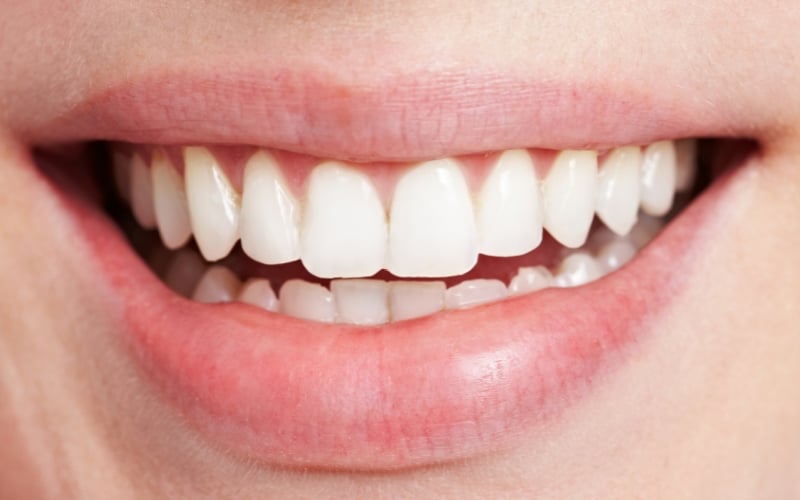ONLINE SCHEDULING AND VIRTUAL CONSULTS AVAILABLE

Sensitive Teeth: Causes, Solutions, and Maintaining Comfort

Sensitive teeth can be a discomforting issue, especially for children. As a parent, understanding the causes, solutions, and tips for managing sensitive teeth is crucial. In this blog post, we’ll explore the common causes of sensitive teeth in children, effective solutions to alleviate discomfort, and practical tips for maintaining dental comfort. Let’s dive in!
Causes of Sensitive Teeth in Children
While sensitive teeth are more common in adults, children can experience them too. Here’s a breakdown of the potential culprits:
Tooth Decay and Cavities: As the most common reason, cavities represent a breakdown of the tooth’s enamel. This exposes the inner dentin layer, packed with microscopic tubes leading directly to the tooth’s nerve center. Cold, hot, sweet, or sour foods and drinks can trigger a sharp, shooting pain through these tubes.
Enamel Erosion: Children love sugary drinks and acidic fruits, but these can erode the protective enamel layer. Think of enamel as a shield. Once weakened, the underlying dentin becomes vulnerable to sensitivity triggers. Besides acidic culprits, bruxism (teeth grinding) and even using a toothbrush with hard bristles can contribute to enamel erosion.
Gum Recession: Healthy gums create a tight seal around the base of each tooth. However, gum disease or improper brushing can cause gums to recede, exposing the root surfaces of teeth. These root surfaces lack enamel protection and are naturally more sensitive to temperature changes and touch.
New Teeth Eruption: When your child loses their baby teeth, and permanent teeth erupt, the new teeth might feel sensitive for a short period. This discomfort is usually temporary as the gums and nerves adjust to the new tooth.
Dental Procedures: Certain dental treatments, like fillings or crowns, can irritate the nerve within the tooth, leading to temporary sensitivity. Even teeth cleaning can cause slight discomfort, especially if there’s underlying gum inflammation.
Solutions for Sensitive Teeth for Your Kid
Sensitive teeth can be a bothersome issue for children, making them avoid certain foods or activities due to discomfort. Luckily, there are various effective solutions to manage and prevent tooth sensitivity, ensuring your child maintains a healthy and pain-free smile. Here’s a breakdown of some key solutions:
Desensitizing Toothpaste: These toothpaste contain ingredients like potassium nitrate or stannous fluoride that block tiny channels in the tooth, preventing pain signals from reaching the nerve. They typically take a few weeks of regular use to show their full effect.
Fluoride Treatments: Fluoride strengthens tooth enamel, the hard outer layer protecting the sensitive dentin underneath. Pediatric dentists in Sunrise, FL, can apply professional-strength fluoride treatments to fortify your child’s enamel further and reduce sensitivity.
Dental Sealants: These thin, protective coatings are painted onto the chewing surfaces of back teeth. Sealants act as a barrier against plaque, acids from food and drinks, and bacteria, all of which can contribute to tooth sensitivity.
Mouthguards: If your child suffers from bruxism (teeth grinding), a custom-fitted mouthguard worn at night can significantly reduce sensitivity. The mouthguard cushions the teeth and prevents them from grinding together, minimizing wear and tear on the enamel.
Proper Oral Hygiene: Brushing twice a day with a soft-bristled toothbrush and flossing daily are crucial for maintaining good oral health and preventing sensitivity. Proper brushing technique ensures thorough cleaning without damaging gums or enamel. Using a gentle, circular motion and a pea-sized amount of toothpaste is ideal.
Maintaining Dental Comfort for Your Child
Here’s a more descriptive and informative take on maintaining dental comfort, incorporating additional points to prevent sensitivity:
Dietary Do’s and Don’ts
Limit Acidic Foods and Drinks: Citrus fruits (like oranges and grapefruits), sodas, and sports drinks are all culprits. Their acidity weakens tooth enamel, the protective outer layer of teeth, leaving them vulnerable to sensitivity and decay. Encourage water as the primary drink and include fruits and vegetables in moderation.
Minimize Sugary Snacks: Sugary treats are a breeding ground for bacteria in your mouth. These bacteria produce acid as they feed on sugar, leading to cavities and sensitivity. Opt for healthier alternatives like nuts, cheese slices, or yogurt (without added sugar).
Brushing Basics for a Gentle Touch
- Choose a Soft-Bristled Toothbrush: Stiffer bristles can irritate gums and wear down enamel over time. A soft-bristled brush effectively removes plaque and debris without being harsh on your teeth.
- Practice Proper Brushing Technique: Don’t scrub! Use gentle circles while brushing all surfaces of your teeth for two minutes twice a day. Remember your tongue, where bacteria can also linger and contribute to bad breath.
Regular Dental Care is Key
Visiting your dentist for checkups and cleanings every six months allows for early detection and treatment of any potential problems. Professional cleanings remove built-up plaque and tartar that brushing alone can’t reach, preventing sensitivity and gum disease.
Sensitive teeth can be a common issue in children, but with the right knowledge and proactive care, it can be effectively managed. By understanding the causes, implementing solutions, and maintaining good oral hygiene practices, you can help your child maintain dental comfort and a healthy smile. If you have any concerns about your child’s sensitive teeth, consult with a pediatric dentist at My Dentist For Life Of Plantation for personalized advice and treatment options.





